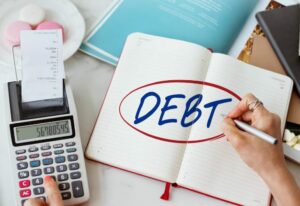The pandemic and the inflation that followed quickly on its heels taught us a lot of things, one of which is the truth that you can’t always prepare for everything life throws at you. A large number of Filipinos were obliged to borrow money to survive due to medical costs and unemployment.
Now that the country is slowly trying to get back on its feet, it’s time to sketch out your financial goals and enjoy the benefits of a life free of debt. Nobody can predict whether or when we will have another catastrophe. As soon as you can, pay off your bills to start fresh and replenish your reduced savings.
Please read: Why Do Banks Write Off Bad Debt?
Exactly what distinguishes good debt from bad debt?
No matter how you define it, debt is debt. Debt means you borrowed money, which should be returned to the lender accordingly.
There are two different kinds of debt, though. Borrowing money to finance investments or other long-term beneficial endeavors is referred to as good debt. On the other hand, bad debt is money borrowed to cover purchases whose value has declined.
A personal loan taken out to pay for your child’s tuition is an illustration of positive debt. You take out a loan to put money toward your child’s future education, which will be advantageous.
With wise debt, you may increase your revenue as well. Some people request short-term loans to fund small businesses. A few people also take out loans to pay for courses that can improve their skill sets and provide them a competitive edge when applying for high-paying employment.
The advantages of good debts outweigh those of bad obligations. Bad spending habits or impulsive purchases can occasionally lead to debt. It also counts as bad debt if you fail to make emergency plans and, out of necessity, turn to high-interest loans.
It is essentially impossible to escape debt during a crisis. However, financial experts don’t recommend repeated borrowing, especially if your salary can’t meet your debt repayments. Always do the math before taking out a loan.
Should You Invest, Save, or Pay Off Debt?
It is not simple to live a debt-free existence. You might rarely earn enough cash, and even if you do, you’re often forced between investing it, saving it, or settling your debt
Confused about which of these selections is the better option? Here are a few situations to consider:
Situation 1: Pay Your Debt First If the Interest and Fees are High
Use your spare money to pay off any loans you have with high-interest rates rather than putting it in a savings account where the interest rate is merely 0.025%.
Let’s imagine you had a ₱5,000 short-term loan with a 10% interest rate, or $5,000 in interest each month. Additionally, you have a savings account where you can only make 0.025%, or ₱1.25, per month. Use your money to pay off the loan so that you won’t have to pay the ₱500 interest.
Situation 2: If you have a loan with a fixed interest rate, save your money.
A loan with a fixed interest rate is one with constant interest payments for the length of the loan. This implies the fees don’t alter even if you pay them in advance unless you pre-terminate the loan and pay the balance in full. In this instance, the ideal alternative is to save money and wait for the due date of your monthly installments.
Situation 3: Invest if the return potential is higher
What distinguishes saving from investing? With investing, you can grow your money faster than letting it just sit in the bank. Through realistic investments such as small enterprises, real estate, and bonds, you can make more.
It is advisable to use your money for investment if the prospective return is greater than the earnings on your savings account or the interest on your loan. This is especially true if you don’t need the amount at the moment and wish to reach a long-term financial objective.
Benefits When You Become Free of Debt
Debt-Free Living Brings Peace of Mind
Imagine running away from the old acquaintance you lent a few thousand pesos. You can’t connect with mutual friends or even join the same group chat as her.
Even worse, you toss and turn at night worrying about other people’s opinions of you and your debt. Being debt-free allows you the pleasure of peace of mind.
You Can Plan for the Future
One of the advantages of being debt-free is obtaining a chance to focus on future aspirations. Instead of fretting about your due date, you can start saving for your ideal house. You can set aside money for improvements or a mortgage downpayment.
Without debts to worry about, you can make your ambitions come true.
You Can Start an Emergency Fund
Instead of utilizing it for debt repayments, you can save your money to guarantee your family’s future. Even the health insurance plans of your loved ones can be paid for, start your emergency fund now!
Having no debt raises your credit score
A high credit score offers lenders confidence in you as a borrower, boosting your chances of getting approved for future loans. One of the perks of being debt-free is that you’ll never have to worry about getting refused a car loan or a house loan.
How to Lead a Debt-Free Life
First, you should recognize that the route to breaking free of debt starts with your acceptance of the circumstance and your commitment to get out of it swiftly.
Once you’ve accepted your commitments, it’s time to take these simple actions.
- List Down All Your Debts
- File a balance transfer or debt consolidation application
- Find ways to increase your income.
- Live Within Your Means
Conclusion
It takes effort to get out of debt; it’s a decision. You can read hundreds of articles on the benefits of debt-free life and how to get out of debt, but it all boils down to discipline.
Zero debt gives you financial freedom and security, which could improve your life and the lives of the people you love.





